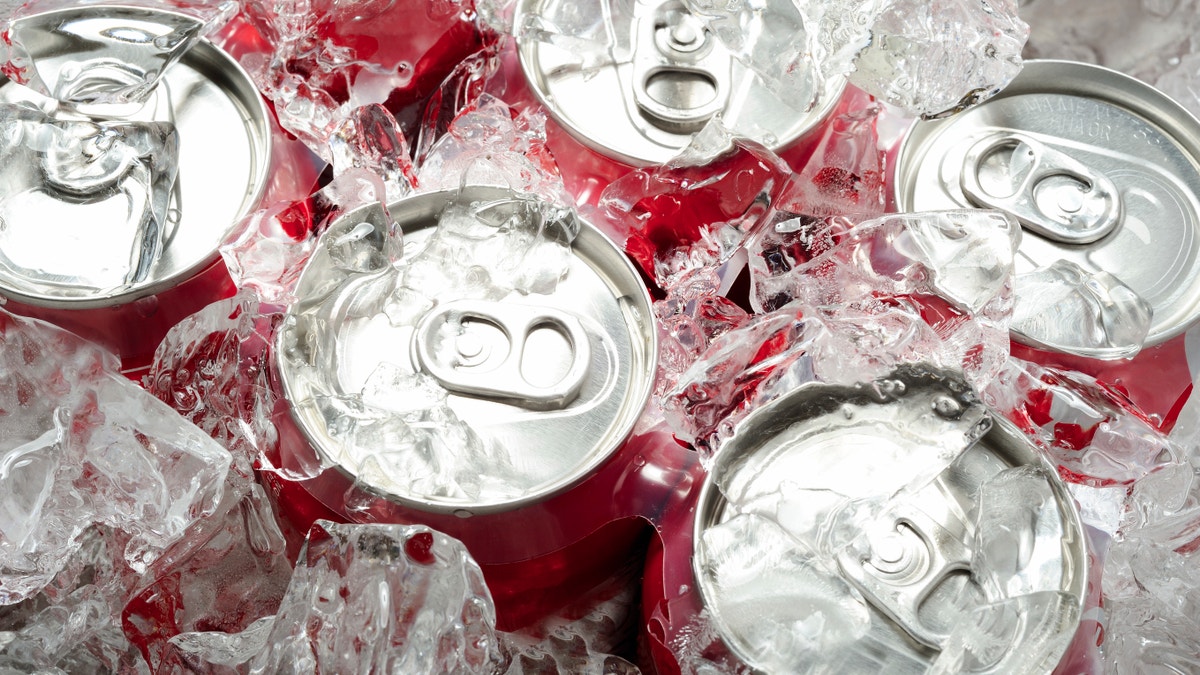
6 Pack Can of Cola with IcePlease see some similar pictures from my portfolio: (iStock)
Do sugar-sweetened beverages like soda and fruit drinks cause obesity and diabetes? The answer may depend on who funds the research asking the question.
An analysis of 60 studies found 26 out of 26 papers that failed to find a link between sugar-sweetened beverages and obesity or diabetes were funded by industry sources, compared to one industry-funded study out of the 34 that did find a connection.
Regulations, taxes and nutrition guidance hinge on whether these drinks cause health problems, but opponents of those initiatives continue to question whether the drinks are to blame, the study team writes in the Annals of Internal Medicine.
"If it were truly controversial, you would expect some of the independently funded studies would not find associations," said Dr. Dean Schillinger, lead author of the analysis, from the University of California, San Francisco.
For their analysis, the researchers looked for studies published from January 2001 through July 2016 that tested the health effects of sugar-sweetened beverages. Studies sponsored by competing industries like dairy and bottled water were excluded from the analysis.
Twenty six studies failed to find links between the drinks and obesity or diabetes, and all of them were industry-funded. Another 34 studies did find associations between the drinks and those health outcomes, but just one was industry-funded.
"This industry seems to be manipulating contemporary scientific processes to create controversy and advance their business interests at the expense of the public's health," the researchers write.
The American Beverage Association (ABA), which represents the non-alcoholic beverage industry in the U.S., argued in a statement to Reuters Health that Schillinger is biased. He is a paid expert for the City of San Francisco in a suit challenging a law that would require a warning label be placed on advertisements for sugar-sweetened beverages.
Schillinger told Reuters Health that he would not be serving as an expert in the suit if the ABA and other organizations did not challenge the law. "I can thank them for being paid," he said.
The ABA statement continued that the industry has the right and responsibility to engage in scientific research.
"The research we fund adheres to the highest standards of integrity for scientific inquiry based on recognized standards by prominent research institutions," the statement reads. "It contributes to the body of scientific knowledge, meets the needs of regulatory agencies and enables consumers to make informed decisions."
The ABA also argued that the new analysis is an opinion piece meant to influence people in areas near San Francisco and Boulder, Colorado, where soda taxes will be up for a vote next week.
"I don't care if there is a tax or not a tax," Schillinger said. "I don't benefit from that, but what I care about is that all my patients in clinic today had diabetes."
The results of the new analysis confirm what previous research found, said Marion Nestle, the Paulette Goddard Professor of Nutrition, Food Studies and Public Health at New York University in New York City.
"Big surprise, they found what everybody else has found," said Nestle, who is also the author of Soda Politics: Taking on Big Soda (and Winning). She wasn't involved in the new analysis.
Nestle told Reuters Health that research from other industries shows the act of giving a gift can influence researchers and doctors. The influence may not even be noticed by the recipient.
Schillinger's team writes that there may be many sources of bias in industry-funded studies, including how studies are designed and what other health and lifestyle factors researchers choose to consider when assessing the effects of sweetened drinks.
Schillinger said they don't know if bias in the included studies would be easy to find or impossible.
"I suspect - based on my preliminary review - that there were particular designs that were selected," he said.
For the public, he said it's important to know the source of the message and who paid the messenger.
"If an industry is paying for it or a food company is paying for it, it's reason for skepticism," Nestle said. Hopefully those results will be replicated by someone without a vested interest, she said.